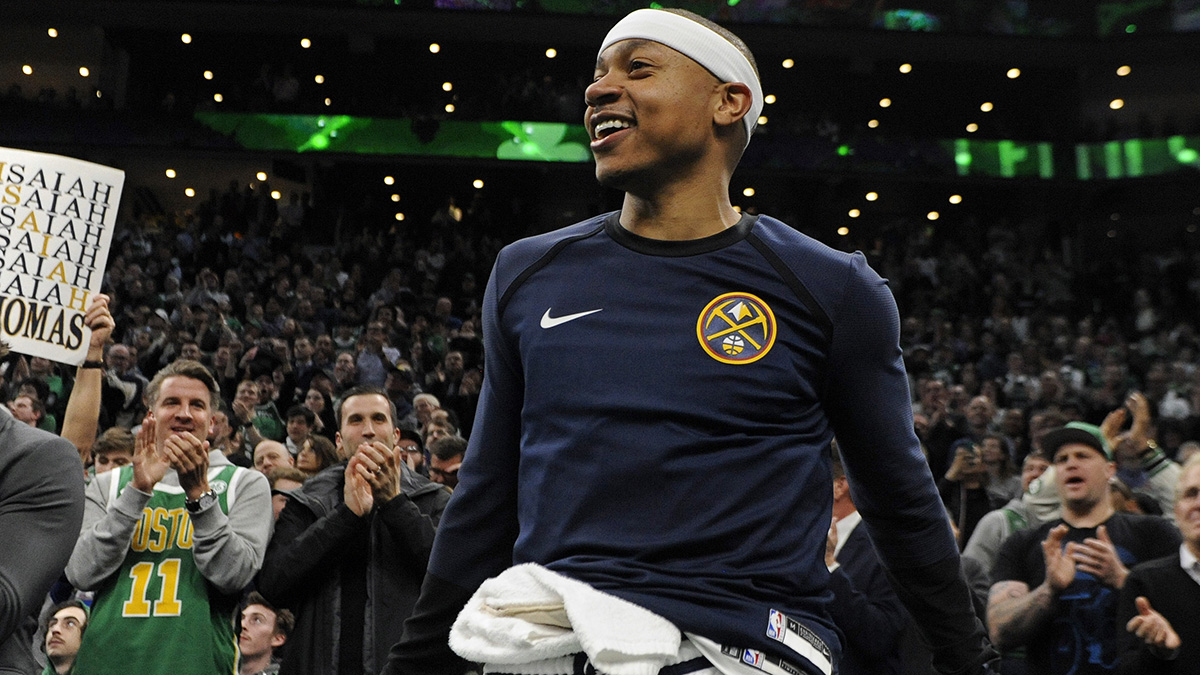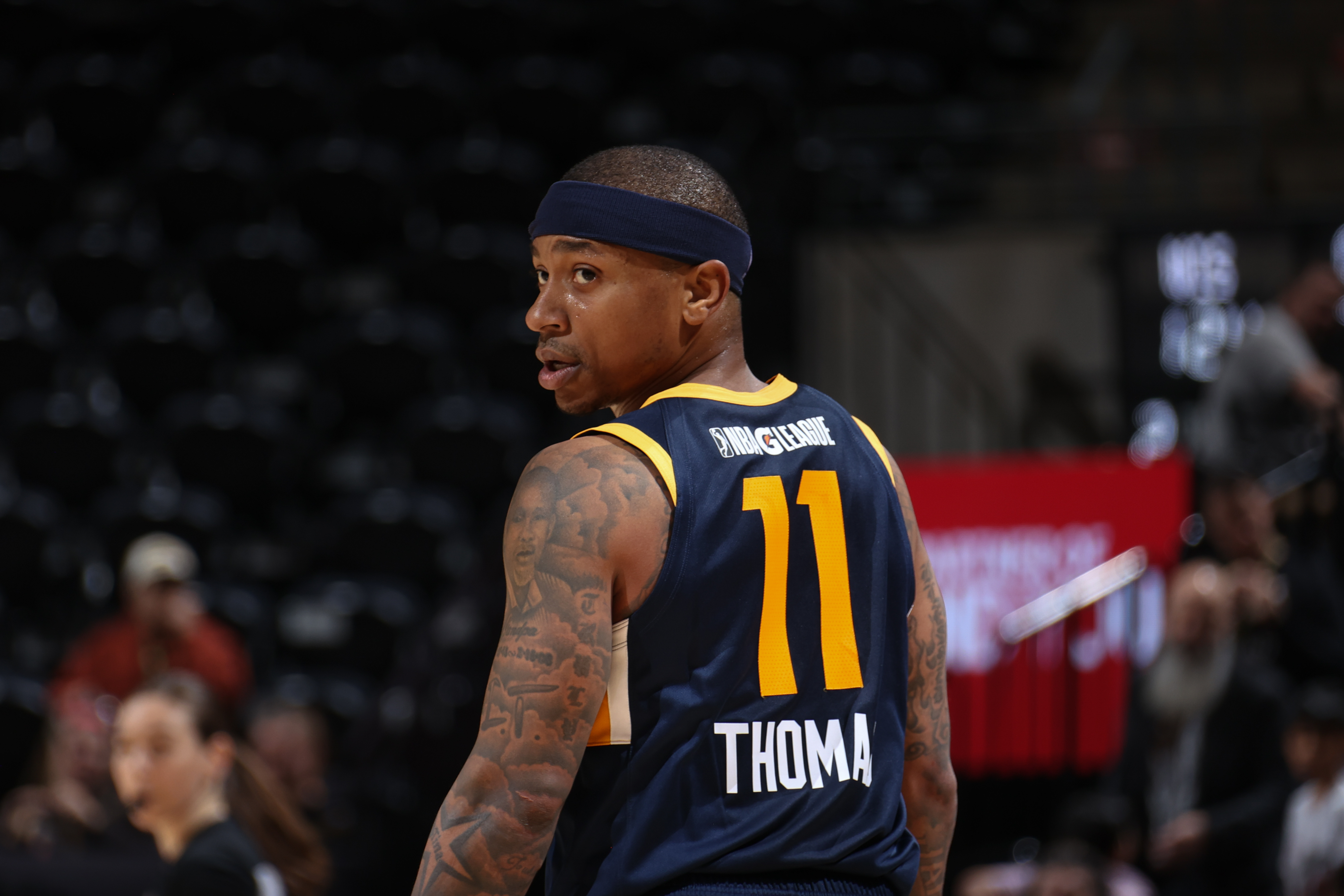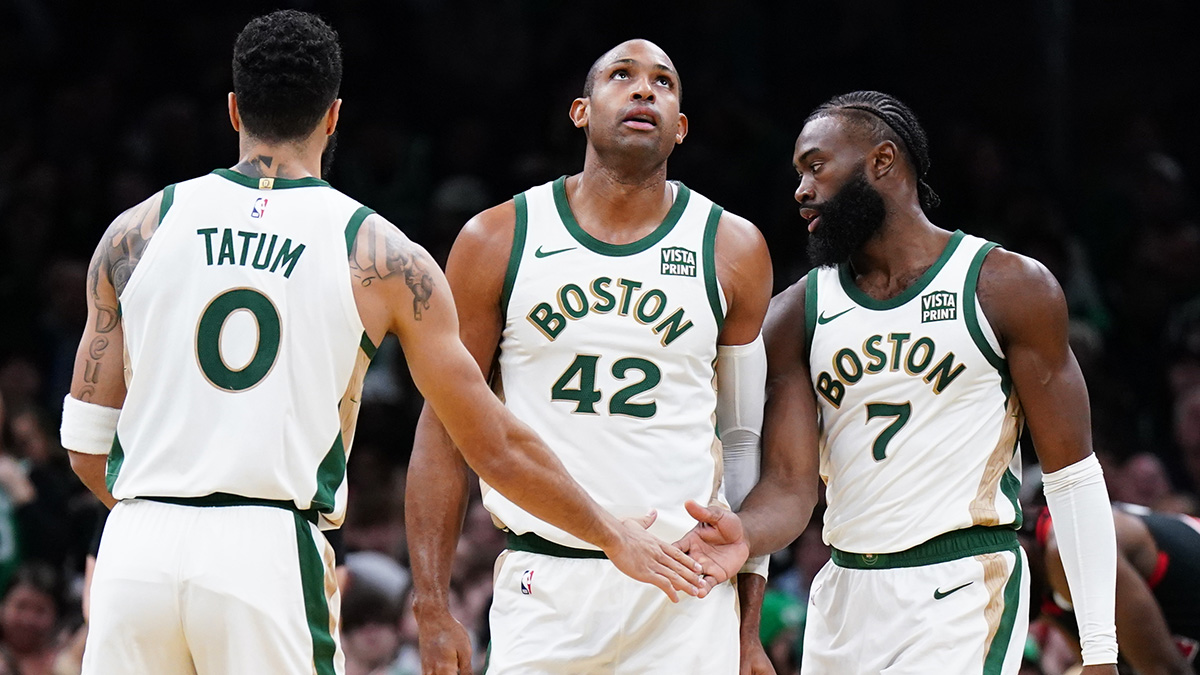The top six players on the Boston Celtics' roster get a ton of credit for the team’s success — and rightfully so. But a trio of role-embracing reserves have done their part to stake Boston to the best record in basketball, and could be vital if the team is to take the final step and secure Banner 18.
Payton Pritchard, Luke Kornet, and Sam Hauser have routinely aided winning this season. While their basic stats rarely leap off the page — though all contributed to Boston’s success on the recent road trip — the advanced numbers highlight their positive impact.
For this week’s Forsberg Four as part of Celtics Post Up, we put the spotlight on that trio and four numbers that accentuate Boston’s bench success:
Stay in the game with the latest updates on your beloved Boston sports teams! Sign up here for our All Access Daily newsletter.
+219
That’s how much Boston’s reserves have outscored opponents during their combined 1,014 minutes of court time this season. That’s the best mark in the NBA and by a considerable margin (New Orleans’ reserves are No. 2 at +178; the next best group of East reserves is Philadelphia at +74).
Boston’s bench doesn’t generate a ton of offensive output. The Celtics actually rank 27th in the NBA with just 28.2 bench points per game. But it’s the reserves' efficiency that stands out.
Boston’s backups are third in the NBA in field goal percentage (47.8) and second in 3-point percentage (38.5). Boston’s bench rebounds well and takes care of the basketball, maximizing all the possessions when reserves are on the court.
In fact, some of Boston’s best lineups tend to be when Jayson Tatum is operating with three or four reserve players, allowing him to be the focal point of the offense for long stretches.
+13.1
That is Hauser’s net rating this season, which ranks second in the NBA among all players logging at least 20 minutes per game (and trailing only teammate Derrick White). The Celtics actually have six of the top seven net ratings in the NBA, which includes three bench players. Pritchard is third, while Al Horford (who we lump in that top six despite his reserve role) is seventh.
Hauser is shooting 42 percent beyond the arc this season on 5.4 3-pointers per game. He’s avoided some of the slumps that eroded his playing time a bit last year. What’s more, Hauser has improved his defense, limiting opponents to 0.90 points per play in isolation, even as teams tie themselves in knots trying to hunt him. He uses his size to block the occasional shot and has gone to the floor hunting loose balls this season.
MORE CELTICS
Hauser knows his job offensively is to space the floor and take open shots when they’re available. Nearly 80 percent of his shots come on catch-and-shoot opportunities with zero dribbles. His 3-point percentage spikes to 43.3 percent when open (4-6 feet from nearest defender) and 44.8 percent when wide open (6+ feet).
Defenses can’t leave Hauser open, which creates opportunities for Boston’s stars to attack. Earning less than $2 million this year, Hauser is an absurd luxury for a team with such a top-heavy payroll.
92.6
That’s the percentage of Kornet’s shots that come within five feet of the basket. In fact, 138 out of his 149 total attempts have come near the rim with Kornet shooting 73.9 percent on those shots (only Kristaps Porzingis has better marks near the basket on this team).
Kornet’s evolution is truly wild. (More on that here.) When he first signed with Boston in 2021, nearly two thirds of his total shots came beyond the 3-point arc. He was the prototypical floor-stretching big. Now he’s a rim-runner who does nothing but throw down lobs and hunt offensive rebounds.
Here’s the breakdown of Kornet’s baskets this year, per NBA tracking: 52 layups, 51 dunks, 25 alley-oops, 18 tip-ins. And zero 3-pointers.
Kornet plays solid defense, holding opponents three percent below expected output, and is successful enough with his now-famous Kornet Kontest that we can’t fully dismiss its potential to mess with shooters.
Maybe most importantly, Kornet brings much-needed levity to a Celtics team that tends to operate with a business-like demeanor. He’ll crash the glass, then crash Derrick White’s walk-off interview to make a Ryan Gosling-themed joke. What other center in the league has that versatility?
5
That’s the team-leading number of heaves (shots from the backcourt) that Payton Pritchard has taken this season.
In a league where players obsess about their shooting percentages, Pritchard is fearless. He was rewarded a couple weeks ago by throwing in one midcourt heave — and nearly made a second. Consider this, all the rest of his Celtics teammates have taken just four heaves this season (two for Hauser, one for both Jrue Holiday and Porzingis).
Pritchard has microwave capabilities off the Boston bench, and has thrived in the second nights of back-to-back this season when Boston might need a zap while resting players. But his biggest strength has simply been taking care of the basketball and maximizing possessions. Pritchard’s turnover percentage in non-trash-time minutes is just 7.4 percent, which ranks in the 95th percentile among point guards, per Cleaning the Glass data.
On Tuesday night against Utah, Pritchard had a turnover trying desperately a home run pass for a potential end-of-quarter heave. All he wants to do is make positive things happen in his minutes. That his net rating is third in the NBA shows he’s been successful doing that.

The lingering question: Will this trio hold up on the playoff stage? All three must prove that teams won’t target them defensively in those minutes. Boston’s top six is so good defensively that any sub that touches the floor becomes Option 1 to attack.
But this trio has the road map to postseason minutes based on their play this season. In-season addition Xavier Tillman can provide some defensive versatility as well.
The trio of Pritchard, Hauser, and Kornet were all part of that 2022 Celtics team that came up short in the Finals but logged just 84 combined minutes against the Warriors with coach Ime Udoka reluctant to really lean on anyone outside the team’s top seven. It felt like the Celtics needed one more trustworthy reserve that year and it’s a big reason why the team added Malcolm Brogdon that offseason.
But each member of Boston’s bench trio has evolved since then. They bonded a year ago, under the guidance of veteran Blake Griffin and his Bus 1 Boys, but have really spread their wings this season while embracing defined roles.
Most importantly, the bench players have embraced accentuating the core and simply giving the team what it needs based on the situation. With the team’s depth thinned at the end of the recent five-game road trip, each member of that trio provided a jolt at various times, helping the Celtics finish the trek 3-2.
Coach Joe Mazzulla should feel confident in what his bench players can offer as the postseason nears. Hauser, Pritchard, and Kornet have distinguished themselves in spots 7-9 on the roster and must simply show now that they can continue to positively impact the team on the playoff stage.



